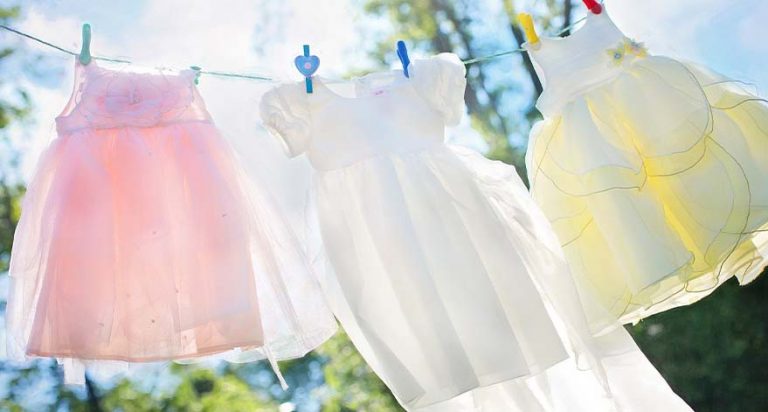Want Cleaner Clothes and a Healthier Environment? Wash Your Clothes in Cold Water
Why Is Washing Clothes in Cold Water Better?
Doing laundry has come a long way, from the hand washing of yesteryears to today’s washing machine. When the washing machine was first introduced, it came the option of using hot water. This was the only option for a long time because it was thought to be superior to cold water. Much of this thinking and preference for hot or warm water had to do with the nature of detergents available on the market at the time. But washing clothes in cold water has many benefits.
Most powder detergents back then and even today require warm water to dissolve sufficiently, which does not leave one with much choice. Here is a look at the difference between hot and cold water washing.
Washing Clothes in Hot Water
The domestic washing machine brought with it many benefits such as valuable time saving, convenience and the novelty of using warm or hot water with washes. Hot water had proved to be especially good for washing heavily soiled and sweaty clothes. It also rinsed away bad odor, leaving your wash with a fresh smell. Also, hot water is proven to be effective against common germs that include flu bugs.
The Cons of Washing Your Clothes With Hot Water
Over the last decade, there has been a rising concern about hazardous emissions that harm the environment. According to the American Cleaning Institute, 90% of the energy consumed by the washing machine goes into heating the water. This high-energy consumption leads to an increased use of fossil fuels in the production of electricity that causes harmful produces harmful emissions into the atmosphere.
The same high-energy consumption is not good for your pocket, giving you even more reason to abandon hot water laundry. It has been demonstrated that using hot water for your laundry will set you back $265 per year, consuming 4.5 kilowatts per load at 68 cents. The same load washed in cold water will consume only 0.3 kilowatts and cost you $16 per year.
Also, using hot water may leave some of your clothes with faded color and can cause them to shrink. Some delicate fabrics like wool, lace and silk can suffer irreparable damage if washed in hot water. Hot water washing is not only harmful to the ecosystem but it is also costly and damaging to your precious clothes too.
Washing Clothes in Cold Water
Previously, washing machines were presumed to work well with hot water. However, they are just as equipped to use cold water for your laundry. The detergent manufacturers have also improved their products with the introduction of enzymes that can dissolve in colder temperatures, making a strong case for the shift to cold-water washing.
Cold-water washing is energy efficient and cost saving as it consumes less than one unit of kilowatt per load as statistics shown elsewhere in the article confirm. This is also eco-friendly and promotes a clean environment that is free of greenhouse gases.
Another great thing about cold water is that not only is it safe but it is also more effective for your delicate fabrics that comprise lace, wool and silk. A cold wash preserves your clothes’ bright colors and protects against shrinkage and wrinkles that would happen in a hot wash. This saves you further power costs that would be necessary for ironing out wrinkled clothes.
Also, cold water does a good job at fighting against types of stains that fail to respond to hot water washing. Grass, blood, or makeup smudges are easily removed by cold water with little effort. In fact, washing some of these stains in hot water will only compound the problem, causing permanent discoloration.
The bottom line is that cold water is energy efficient, eco-friendly, gentle on your clothes and it easy on your pocket. This makes it a better choice for your home laundry.
The Cons for Cold-Water Laundry
Even though there are more pros to washing your clothes in cold water, it may not be effective against germs when washing clothes or bed linen used by a sick family member. In this case, warm or hot water may be a better sanitizing option. Also, synthetic fabrics like spandex, nylon and polyester may not wash well in cold water.
Overall Benefits for the Ecosystem
Electricity generation in whatever form has some level of adverse environmental impact on air, water and land in varying degrees. A high demand for electricity means an increased consumption of fossil fuels (as high as 40% in the U.S.) which adds to the carbon footprint. As demonstrated above, home washing machines expend over 90% of the power consumed for every load on heating the water.
What this means is that using cold water in laundry machines is a service to the environment that ensures our wellbeing. You should find out how much you and your family contribute to carbon emissions through energy consumption. Then, use this information to cut back and help preserve our ecosystem. You can use the EPA’s Household Carbon Footprint Calculator to do this conveniently.
Whatever the case, cold-water washing still comes out with more benefits than hot water. You save money, your clothes do not suffer damage and you contribute to a better and healthier environment for you and generations to come.
In Conclusion
Cold-water washing is gentle on your clothes, enhancing longevity that saves you money on frequent replacements. It preserves original quality and colors do not run or fade, keeping your garments in pristine condition. Then, there is the added advantage of low power costs and a cleaner, healthier environment that is good for you and your family. What other reason or motivation would you need to turn the switch on your washing machine to cold water setting?

